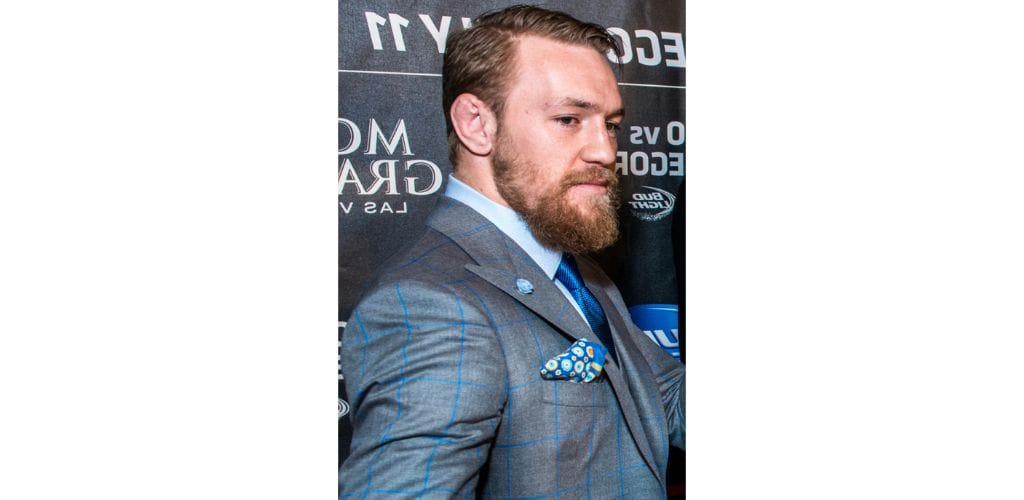The Copyright Claims Board (CCB) has awarded a photographer $2,850 in damages for the use of his picture on social media platforms.
As Plagiarism Today reported, photographer Martin McNeil filed his claim in 2023 based on a photo he took in 2013 of Ultimate Fighting Championship (UFC) fighter Conor McGregor (shown above) throwing a punch in a fight.
McNeil is a professional photographer who has worked with ESPN, The New York Times, and other media.
In 2023, Experience the Fight Media LLC (ETFM) used a slightly altered version of the photo in an “on this day” collage on Twitter (now X), Facebook, and Instagram.
McNeil said the changes involved rotating the image, converting it to black-and-white, and cropping the top and bottom.
McNeil initially sent a takedown notice under the Digital Millenium Copyright Act (DMCA). He also offered ETFM the right to use the photo for his usual licensing fee, but he said ETFM failed to respond.
ETFM also filed a counter-notice under the DMCA in order to restore the post.
This led McNeil to file his claim with the CCB.
According to Plagiarism Today,
ETFM tried nearly everything they could to get it dismissed or reduced.
They argued fair use, claimed not to be responsible for the uploads, said they were not wilful [sic] or negligent, and so forth.
The CCB found no evidence that anyone unauthorized by ETFM uploaded the image. They also found that all four copyright fair use factors favored McNeil.
As for the issue of damages, McNeil was able to produce at least 18 licenses for his work to establish fair market value. The CCB picked a relevant license fee, for $946, and then multiplied it by three (treble damages) as allowed by copyright law for willful infringement.
We first wrote about the new CCB – sometimes called the “copyright small claims court” – back in 2021. It was, somewhat oddly, created as part of the 5,500-page COVID-19 stimulus relief and government-funding bill signed into law in December of that year. As we explained then, the Copyright Alternative in Small-Claims Enforcement Act (“CASE Act”) revises the Copyright Act, 17 U.S.C. §§ 101 et seq. and creates a Copyright Claims Board (CCB) within the US Copyright Office.
According to the Copyright Alliance,
Most professional creators and small businesses cannot afford to enforce their rights when someone infringes their copyrighted works. The CASE Act is intended to address these obstacles by creating a voluntary and affordable alternative to federal court for small copyright claims.
We wrote about the CCB again in 2022 when it became active.
The following types of claims may be heard by the CCB:
- Copyright infringement claims
- Declarations of non-infringement of copyright
- Claims for failure to remove or disable access to allegedly infringing content after notice-and-takedown procedures under the Digital Millennium Copyright Act (DMCA) have been followed
- Misrepresentation in connection with a DMCA claim
- Counterclaims relating to the above
- Defenses such as first sale and fair use
The CCB may not award more than $15,000 in statuary damages per copyrighted work, no more than $30,000 in total actual or statutory damages, and no more than $5,000 in attorney’s fees in cases of bad faith unless a party can present evidence of extraordinary circumstances. More info about the CCB process is here.
As the CCB explains,
eCCB is the electronic filing and case management system for the Copyright Claims Board (CCB).
Participants and their representatives may register for access to eCCB to file, receive, and review documents related to CCB proceedings.
Claimants with eligible copyright infringement, noninfringement, or misrepresentation claims that request relief of $30,000 or less may register as eCCB users and file a claim through eCCB. Respondents may opt out without registering as a user, or may register to respond to a claim, file counterclaims, and participate in an active proceeding.
Just like the haiku above, we like to keep our posts short and sweet. Hopefully, you found this bite-sized information helpful. If you would like more information, please do not hesitate to contact us here: https://aeonlaw.com/contact-us/.


